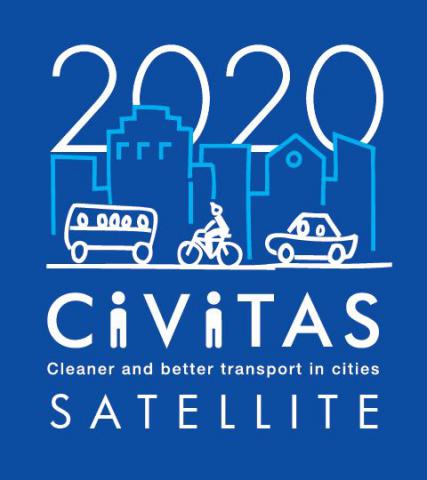New Topic Guide on planning for more resilient and robust urban mobility
As cities and regions respond to the COVID-19 pandemic with new and innovative transport solutions, what are the lessons for long-term sustainable mobility planning?
Sustainable urban mobility planning (SUMP) is a strategic and integrated approach to dealing with the complexity of urban transport.
Across Europe, local authorities and their private operating partners are striving to create sustainable solutions for passenger transport and freight that foster accessible, safe and affordable mobility, while aligning with European Green Deal emissions reduction objectives.
As part of the CIVITAS SATELLITE Coordination and Support Action, and supported by projects from the CIVITAS Initiative, the Topic Guide, “Planning for More Resilient and Robust Urban Mobility” has been compiled.
Drawing on lessons learned during the COVID-19 pandemic, it exhibits possible avenues for accelerating the transition towards more resilient and sustainable urban mobility systems and increasing preparedness for any future crises that arise.
Urban transport systems must be able to endure and respond to crisis situations, from pandemics to climate change. An immediate crisis can cause further long-term changes and increase the impact of other major trends, such as climate change. Managing such fundamental change processes is a key challenge for urban mobility practitioners to integrate into their plans.
Transitioning toward more sustainable and resilient solutions requires comprehensive changes in transport systems, expanding active travel, public and shared transport and electromobility infrastructure.
Cities’ and regions’ responses to COVID-19 exhibit that change is possible. From pop-up cycle lanes to parklets, transport options have been transformed and extended to build resilient and robust mobility services which are embedded in SUMP agendas.
The Topic Guide introduces the concept of resilience in urban mobility and presents the importance of integrating it into the SUMP process.
It explores a range of case studies POLIS members, Dublin, Madrid, Rotterdam- and their neighbours, examining how pioneering CIVITAS projects such as ReVeal, Handshake, SPROUT and Park4SUMP are working in different fields towards increasing the resilience of cities. It explores the challenges faced, goals achieved and lessons learnt along the way.
Read the publication here.





